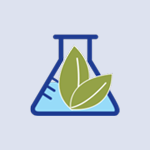Reference
Abdel-rahman MS, Alkady EA, Ahmed S. Menaquinone-7 as a novel pharmacological therapy in the treatment of rheumatoid arthritis: A clinical study. Eur J Pharmacol. 2015 Aug 15;761:273-278.
Study Objective
To clarify the therapeutic role of the menaquinone-7 (MK-7) form of vitamin K2 added to a standard treatment regimen for rheumatoid arthritis (RA)
Design
Randomized clinical trial
Participants
Eighty-four RA patients (24 male, 60 female), average age 47 years, undergoing standard treatment for RA (methotrexate therapy [MTX])
Intervention
Forty-two patients received 100 µg/d of MK-7, and 42 patients served as controls without supplementation.
Study Parameters Assessed
Disease activity score assessing 28 joints calculated with erythrocyte sedimentation rate (DAS28-ESR), matrix metalloproteinase (MMP-3), ESR alone, C-reactive protein (CRP), and MK-7 serum concentration
Key Findings
The MK-7 treated group showed a marked decrease in RA biochemical markers compared to controls, including significantly lower CRP, ESR, and DAS28-ESR. This suggests improved disease activity in RA patients and a promising new agent for RA in combination with standard RA treatment.
Practice Implications
RA is a chronic inflammatory disease affecting multiple joints. The progressive destruction of the joints is mainly dependent on the evolution of hyperplastic synovial tissue, which in turn is a function of dysregulated cellular proliferation and apoptosis.
MTX is a standard therapy for RA, and its mechanism of action is thought to be its inhibitory effects on hyperplasia of synovial tissue. In theory, other treatments that inhibit synovial hyperplasia have potential for anti-RA therapy.
Menaquinone-7 appears to offer a number of practical benefits over menaquinone-4 in terms of lower dosing and single daily dosing instead of multiple doses.
Vitamin K2 in the form of menaquinone-4 (MK-4) has been shown to reduce the proliferation of rheumatoid synovial cells in in vitro and in vivo models.1 Recently, it was found that 45 mg per day of MK-4 reduced clinical and biochemical markers of disease activity.2,3 For these reasons, MK-4 has been recommended as a new agent for the treatment of RA either alone or in combination with standard RA therapy.
MK-7 is a form of vitamin K2 that has greater bioavailability than MK-4 after oral administration,4 but the therapeutic utility of MK-7 in RA had not been investigated previously. The present study revealed that administration of MK-7 (100 µg/d) to RA patients for 3 months decreased levels of CRP, ESR, DAS28-ESR, and MMP-3, suggesting that this form of vitamin K2 is also effective in the treatment of RA.
Vitamin K2 occurs in nature in several forms; each form is designated by the length of the side chain (the number of isoprenoid units) of this fat-soluble molecule. Different forms of vitamin K2 are found in varying amounts in foods of disparate origins. MK-4, a relatively short-chain menaquinone, is found in foods of animal origin, such as butter and egg yolks. Longer-chain menaquinones (MK-5 to MK-10) are found in variable amounts in fermented foods, such as cheese.5 MK-7 is the predominant form of vitamin K2 in the Japanese fermented soy food natto, and it is of commercial and clinical interest since it is readily available for supplementation.
Synthetic MK-4 supplements were the first to market, and the early research on vitamin K2 starting in the mid-1990s used this form, typically in a dose of 15 mg 3 times per day or 45 mg (45,000 µg) daily. While this dose is very high—and seemingly arbitrary—vitamin K2 is virtually nontoxic, so this became the standard dose in research and clinical practice. One recent study used MK-4 in lower doses, such as 600 µg daily.6 Further studies are required to confirm whether MK-4 is effective in these lower, more dietarily accessible doses.
Research using the MK-7 form of vitamin K2 began about a decade ago. Likely due to its longer side chain conferring greater liposolubility, MK-7 has a much longer half-life than MK-4. This is a main reason that dosages of MK-7 may be as low as 45 µg daily and that single daily dosing is possible. The present study used 100 µg once daily.
Based on this small study, it appears that MK-7 in doses of 100 µg daily for 3 months can improve disease activity score in RA patients. This study was limited by its small size and possible selection bias, which was acknowledged by the authors. However, it confirms the actions previously seen with MK-4 and contributes to the body of knowledge of vitamin K2 in both commercially available forms as a potentially helpful agent in the management of RA.
A worthwhile note for clinicians is that 6 of the 42 patients in the treatment group of the present study (roughly 14% of this small sample) did not demonstrate improvement in rheumatoid disease activity and were considered to be nonresponders. Blood levels of MK-7 were found to be significantly lower in these patients, suggesting differences in absorption and/or metabolism. No comment was made as to how this finding compares to levels of nonresponse for MK-4.
MK-7 appears to offer a number of practical benefits over MK-4 in terms of lower dosing and single daily dosing instead of multiple doses. However, in order to fully understand whether 1 type of vitamin K2 is in fact superior to another requires more head-to-head studies comparing clinical outcomes of both commonly available forms of the vitamin K2.






